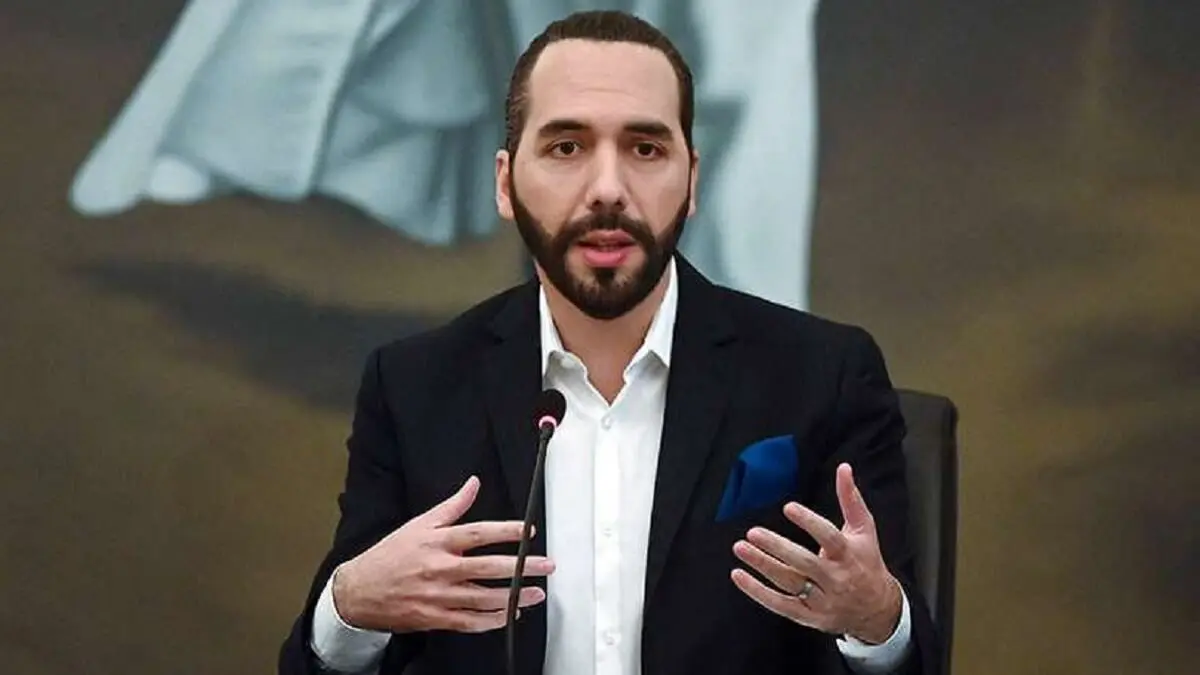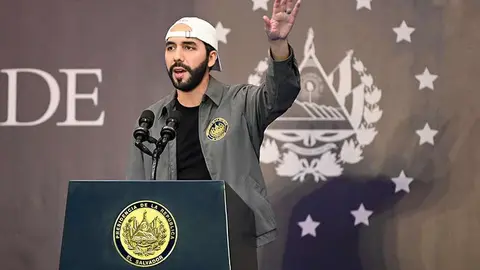Bukele: the new Latin American messiah

In El Salvador, President Nayib Bukele won the elections easily, but the country remains in ruins, bankrupt and with high poverty rates. Despite the fact that his government has reduced levels of violence and insecurity with a draconian emergency regime that has led to the imprisonment of more than 75,000 Salvadorans accused of gang links and who have denounced serious human rights violations. However, in terms of the economy and poverty reduction, the government's record is rather critical.
Difficult economic situation
In the opinion of Salvadoran economist Tatiana Marroquín, "when one reviews all the economic dynamics of four years ago, they are the same or worse: low foreign investment, low economic growth, a trade balance in deficit. We depend more on foreign purchases than on what is produced here. The foreign debt has reached an all-time high of 80.9%, and nearly 25% of the budget has to be spent on paying it off".
The poverty rate is one of the highest in Latin America, at 28.4%. Of the six million Salvadorans, according to the FAO, more than 48% of the population suffers from food insecurity. Some 1.8 million Salvadorans still live in extreme poverty, without access to basic necessities such as food. President Bukele, in the world of egomania, populism and messianism in which he moves, decreased the budget for Education, Health and Public Works from 9.6% of GDP to 8.2%. On the other hand, he multiplied the budget for Presidential Communications and Press to give free rein to his populist policies.
For analyst Bessy Ríos, "improving the economy will continue to be the big problem for Bukele's government in this new mandate, although he has controlled violence, the problem is that he has not managed to get the country's economy off the ground. His bet to boost the economy has been on tourism, but the results have been nowhere to be seen". El Salvador is a country in ruins and with high levels of poverty, but in the midst of this critical economic panorama, President Bukele acts as the great messiah of the Latin American ultra-right, the Latin American incarnation of Adolf Hitler and with the authoritarian style of former Peruvian president Alberto Fujimori in the 1990s.
President Bukele, according to his office's electoral calculations, declared himself the winner of the elections with 85% of the vote. As a result, he will govern for another five years and most likely remain in power forever. His party Nuevas Ideas also declared him the winner of the parliamentary elections in the National Assembly with 58 of the 60 deputies before the Electoral Tribunal delivered the official results.
Everything indicates that a new Latin American Hitler is consolidating power in El Salvador with an electoral script similar to that of African satraps such as Teodoro Obiang Nguema (Equatorial Guinea), Paul Biya (Cameroon), Idriss Déby (Chad) and Isaías Afewerki (Eritrea). Likewise, identical to the electoral methods of the European satrap Aleksandr Lukashenko (Belarus) and the Asian Emomali Rahmon (Tajikistan). Finally, in the best style of Latin American dictators like their neighbours Daniel Ortega (Nicaragua) and Nicolás Maduro (Venezuela).
@j15mosquera



